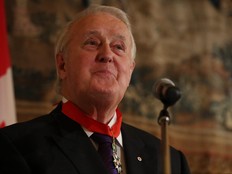GOLDSTEIN: Honda decision raises doubts about Canada’s $52.5 billion bet on EVs

Article content
Honda’s decision to delay its $15-billion Electric Vehicle project in Alliston, Ontario for two years is a reminder of the enormous financial stake federal and provincial governments have made in EVs, committing to larger taxpayer-funded incentives than the industry is investing in itself.
A report by parliamentary budget officer Yves Giroux last year pegged total government support for 13 Canadian EV projects announced between Oct. 8, 2020 and April 26, 2024 at up to $52.5 billion — 14% higher than the $46.1 billion the companies are investing in them.
Recommended Videos
Of the $52.5 billion, $31.4 billion, or 60%, comes from the federal government, while $21.1 billion, or 40%, comes from provincial governments.
Since 2019, the federal government has also handed out $3 billion in rebates to purchasers of EVs, a program which was abruptly suspended earlier this year after the allotted funding ran out, although Prime Minister Mark Carney said during the election campaign his government would consider restoring them if the Liberals won.
The PBO estimates that would cost taxpayers more than $11 billion from now until 2030.
Honda’s $15-billion Alliston project, including a new EV battery plant and a retooled vehicle assembly line, is scheduled to receive a total of $5 billion in government support — $2.5 billion from the federal government in investment tax credits and $2.5 billion in construction and other financial supports from the Ontario government.
When then prime minister Justin Trudeau and Ontario Premier Doug Ford announced the deal with Honda in April, 2024 they said it would directly “create over 1,000 well-paying manufacturing jobs in Ontario” as well as “thousands of additional direct and indirect jobs in Ontario and across Canada.”
The primary concern is not that government money will be lost in EV projects as most of it is contingent on the companies involved meeting production and other commitments, as well as being linked to the continuation of similar incentives in the U.S., which have been thrown into doubt with the election of President Donald Trump, who opposes EV subsidies.
But it does raise the issue of whether taxpayers will be receiving good value for money if more of these projects are delayed, reduced in size or never happen.
Some are in trouble.
For example, the future of a $7-billion plant built by Swedish battery maker Northvolt planned for the Monteregie region on Montreal’s South Shore — to which the federal and Quebec governments have earmarked more than $8 billion, according to the PBO — is now in doubt because of the parent company’s bankruptcy.
Umicore, based in Belgium, announced last July it was delaying construction of a $2.8 billion EV battery materials plant in Loyalist Township in Eastern Ontario, with almost $1 billion in planned financial supports coming from the federal and Ontario governments, according to the PBO.
Last month, GM Canada, scheduled to receive more than $500 million from the federal and Ontario governments in 2022 to support its $2.3 billion program to upgrade its facilities in Oshawa and Ingersoll, temporarily halted production and laid off 500 workers at its Ingersoll plant, because of poor sales of its EV delivery vehicle.
The reason for these production cutbacks has been blamed on everything from the relatively high costs of EVs to economic uncertainty created by Trump’s tariff war, but the upshot is the jury is out on whether Trudeau’s decision to “bet big on electric vehicles,” as he described it last year, was a wise one.











Postmedia is committed to maintaining a lively but civil forum for discussion. Please keep comments relevant and respectful. Comments may take up to an hour to appear on the site. You will receive an email if there is a reply to your comment, an update to a thread you follow or if a user you follow comments. Visit our Community Guidelines for more information.